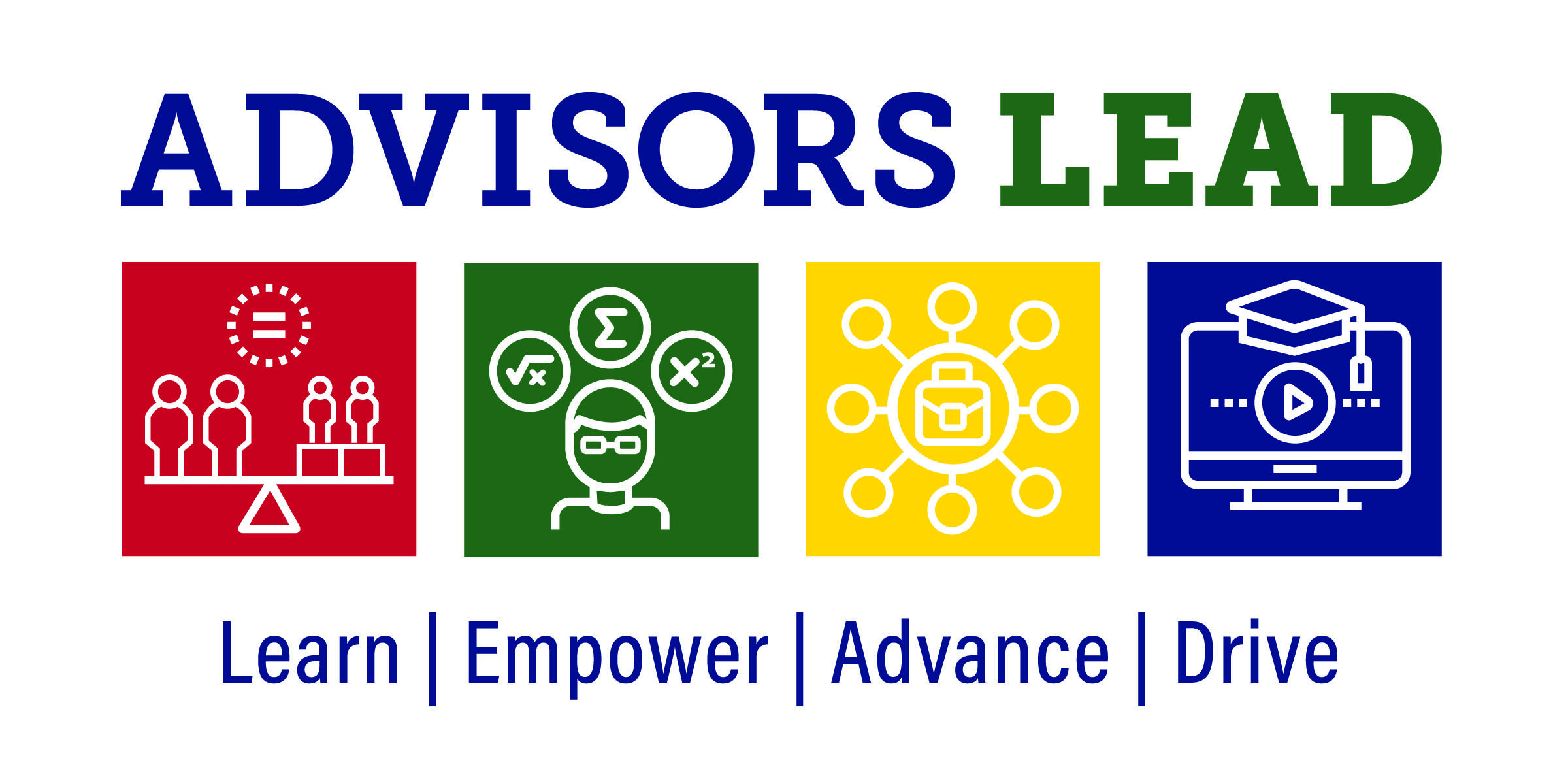Advisors LEAD
Advisors LEAD is a professional development course designed to help Colorado's advisors increase their skills and competencies in five key areas: equity and inclusion-driven practices, math pathways literacy, purpose-driven advising, effective virtual advising, and advising students in transition.
The course is free of charge, online, and self-paced. It provides interactive, pragmatic, and action-oriented content. Advisors LEAD was informed by a survey of Colorado advisors and co-created by CDHE staff, Student-Ready Strategies, and a cadre of NACADA-endorsed experts, with funding from Strong Start to Finish.
Learning Outcomes for Advisors
Upon completion of the virtual advising module, academic advisors will be able to:
- Recognize what supports all students need to be successful in a remote environment
- Create a virtual space in which students are able to engage as their authentic self
- Appropriately inquire about students’ non-academic challenges and needs
- Determine what additional supports may be needed to ensure equitable learning outcomes in these environments
- Make effective virtual referrals to institutional and external resources to resolve academic and non-academic challenges
- Understand the importance of prioritizing self-care, especially in personally challenging times
In this module, academic advisors will learn how to:
- Describe the importance of proactive academic planning, to include curricular and co-curricular activities, that is rooted in students’ professional and personal goals
- Facilitate students’ career exploration process with a focus on connecting their interests, skills, values, and personality with specific career goals
- Direct students to academic disciplines that are aligned with the students’ aptitudes and career interests
In this module, academic advisors will learn how to:
- Describe the purpose of math pathways
- Explain the concept of math pathways in accessible, student-friendly language
- Distinguish among different gateway math courses, in terms of general content and applicability to various disciplines
- Advise students into appropriate math gateway courses aligned to their major or program of study
In this module, academic advisors will learn how to:
- Differentiate between asset-based and deficit-based language
- Identify how advising practices might unknowingly perpetuate dominant beliefs, unconscious biases, and microaggressions related to privileged and marginalized social identities (Vera Stenhouse, 2012)
- Implement structures that are equity-oriented and culturally relevant with an understanding of students’ lived experiences
- Maintain an inclusive advising environment in which students are able to engage as their authentic self
- Establish a clear and shared definition for equity and a shared operational understanding of how it informs the relationship between advisor and advisee
- Develop or expand understanding or cultural competency and include cultural humility in advising practices
Advisors who complete the Students in Transition module will learn how to:
- Identify and empathize with differing transition points in a student's postsecondary journey, including high school to postsecondary, postsecondary to postsecondary, postsecondary to workforce, and returning students (stop-outs to re-enrollees)
- Describe the major policies and structures that facilitate Colorado's postsecondary credit mobility and transfer system, including: State policies that govern postsecondary credit transfer, including GT Pathways; credit for prior learning; acceleration mechanisms like concurrent enrollment and credit-by-exam; and college and career readiness
- Provide accurate and timely information to students, family members, and high school counselors related to state and institutional credit mobility and transfer systems
- Align student needs with appropriate supports in the different transition points within Colorado's higher education ecosystem
- Describe how state and institutional policies and practices shape the experiences and outcomes of students in transition at their campuses
- Use their knowledge to act as influencers and change agents at their campuses to bolster the success of students in transition
Additional Information
Advisors can access this self-paced, asynchronous course at their own convenience for 12 months from the date the invitation is sent. Each of the courses’ five modules takes approximately 45-60 minutes to complete.
Access to the course is by invitation only. Interested participants should fill out this form. CDHE staff will then reply with an invitation and detailed information about the course.
Note: If you have already successfully completed the Advisors LEAD course and are interested in an invitation to the new Students in Transition module, please complete this form.
For more information on the modules, contact Christina Carrillo at christina.carrillo@dhe.state.co.us.
Are you a student services professional -- academic advisor, high school counselor, or other -- who has completed the Advisors LEAD course? Answer a short survey about your experience with the course.
